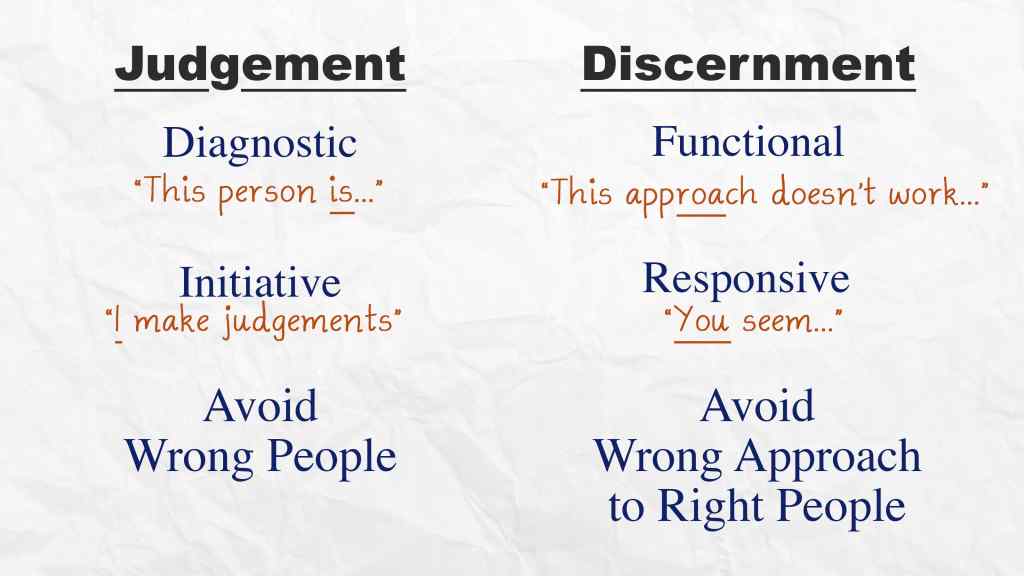
To Judge or Not to Judge? Seeking God Among the Pigs and the Dogs (Matthew 7:6)
Jesus kicks off Matthew 7 with a firm warning about the dangers of judgement, then follows this up by mocking those who judge the speck of dust in the eyes of others. On its own, I consider this teaching against judgement challenging, but also compelling and thoroughly coherent. If the teaching ended with verse 5, I’d take a deep breath and go about the business of trying to live it out. But the teaching does not end at verse 5. No, in verse 6 Jesus adds this noisy gong:
“Do not give dogs what is sacred; do not throw your pearls to pigs. If you do, they may trample them under their feet, and then turn and tear you to pieces.”
Jesus abruptly shifts from “do not judge” to “you must determine who the pigs and dogs are.” This seems like blatant judgement. How can I avoid throwing my pearls to the wrong people without first judging which are pigs and which are not?
In my quest to find a solution to this apparent inconsistency, I encountered multiple theories and explanations. Ultimately, I stubbornly embraced the classic solution, which says something like: In Matthew 7:1-5 Jesus warns against judgement, but in 7:6 encourages discernment.
I say stubbornly because, well, the discernment-explanation initially seems to me like a bit of a cop-out. It seems like semantics. I mean, just because we call it discernment instead of judgement, aren’t we doing the same thing? Jesus takes such a firm stance against judgement in verses 1-5 that, for me, whatever Jesus advocates for in verse 6, it cannot coherently be judgement at any level. A satisfactory explanation of verse 6 cannot simply be soft-judgement, or judgement-lite. So if Jesus advocates for discernment in verse 6, fine. But his understanding of discernment must mean something fundamentally different than his understanding of judgement. The two ideas cannot even be on the same spectrum. Otherwise, the discernment explanation fails.
Discernment is NOT Simply Diet Judgement
I’ve come to the conclusion that these two ideas really do differ in important and fundamental ways—and, so, the discernment-explanation works after all. First, judgement tends to be wholly diagnostic. We diagnose a person: he’s good, she’s righteous, that guy’s wicked, this lady over here is bad, and so forth. Discernment, as Jesus teaches it, seems mostly functional, focusing primarily on our interactions with people.
Second, judgement tends to be proactive: we project judgement onto those around us. Discernment tends to be more reactive: we manage our interaction in response to how others act toward us.
Judgement tends to be motivated by a desire to avoid the wrong people. Discernment tends to be motivated by wanting to avoid the wrong approach toward people.

Discerning Worthiness in Matthew 10
We see Jesus’s understanding of discernment vividly in Matthew 10. There, Jesus sends out the disciples with the mission to seek out “the lost sheep of Israel” (10:6). He warns the disciples that they are “like sheep among wolves” (10:16), so they ought to “search for some worthy person there” (10:11). Again, seeking out a worthy person seems, to me, like a task involving the very act of judgement Jesus forbids. And the question returns: should we judge or not?
Jesus does not define what a worthy person is, but he does describe an unworthy person: someone who “will not welcome you or listen to your words” (10:14). Notice how Jesus’s understanding worthiness relates totally to how a person acts toward you and has little to do with that person’s nature or fundamental goodness or badness. Discernment, as Jesus seems to understand it, relates to the spaces between people, not to the people themselves. When we discern, we consider a person’s current receptivity to us, not that person’s eternal moral state, or their fundamental nature.
Bringing it Back to the Farm
When we take all of this back to Matthew 7:6, I think we see that Jesus’s teaching really has to do more with our pearls than with the pigs we encounter. It has more to do with our sacredness than with the dogs we encounter. We don’t share our teachings or messages with people who are unwelcoming and who won’t listen to us because such messages and teachings won’t do them any good, much like giving pearls to a pig won’t do pigs any good—they cannot eat pearls, and wearing them in the mud would defeat the purpose. And when people fail to welcome us or to listen to us, that’s a clear sign that they cannot recognize something sacred—much like a dog has no understanding of sanctity.
In Matthew 7:6 Jesus teaches warns his audience that sharing even a good message with an unreceptive person is certainly futile, and may even become dangerous. Here at the end of The Sermon on the Mount, after having shared many pearls and sacred things, Jesus implores his listeners to manage those treasures wisely.
Canaanite Canines
A person can seem unwelcoming and dismissive one moment, but then later on that same person can present totally different. Even the most hardened of hearts can soften, and the most closed-minded can become struck with curiosity and openness. Whereas judgement labels people in permanent ways, discernment describes the temporary actions and affects of people.
This might be why Jesus, in Matthew 15, praises the Canaanite woman’s faith, with great enthusiasm even, only moments after calling her a dog (Matthew 15:21-28). A person might be unwelcoming and close-minded now, but then open and curious later on.
The Two Bozos
Watch how differently Jesus responds to Herod and Zacchaeus. Both of these hotshots rumbled through the empire brandishing their powers to squeeze and dishearten the Jews around them. Both tapped into the fear of the empire to get what they wanted from their targets. Yet even though they displayed similar power-abuses, underneath their presentations thumped two very different hearts, and Jesus discerned that and responded to them differently and accordingly.
Herod wanted to meet Jesus since long before, back when Herod had beheaded John the Baptist (Luke 9:9). He finally encountered Jesus in Jerusalem when Pilate delegated Jesus’s sentencing to Herod. Herod hoped Jesus would do tricks for him, perform a miracle, or something spectacular like that (Luke 23:8), but Jesus would not. Then Herod assailed Jesus with many questions (Luke 23:9), but Jesus offered no answers. Herod then shifted from curiosity to scorn, mocking Jesus and sending him to Pilate to be crucified.
Compare Jesus’s treatment of Herod with how he responded to Zacchaeus.
Zacchaeus, like Herod, wanted to see Jesus. But he feared the crowds because he was a tax collector, so instead of risking getting beat up or abused, he went on ahead and climbed a tree to wait for Jesus. Even thought Zacchaeus, like Herod, exploited the Jews with his authority, Jesus responds totally different to him. Instead of giving him the silent treatment, Jesus called up to him. Instead of ignoring Zacchaeus, Jesus invited himself over to Zacchaeus’s house for dinner. And when that dinner concluded, Zacchaeus repented of his wrongdoings and made reparations for whatever harm he had caused (Luke 19:8).
Herod came to Jesus in a state of piggery. Zacchaeus came with sincere curiosity and an open heart.
Conclusion
After warning about the dangers of judgement in Matthew 7:1-5, Jesus implores us to walk out our faith with careful discernment. This makes sense. Jesus, here, brings his sermon to a close by mapping out the path of discipleship: the narrow gate versus the wide road (7:13-14), the true prophets versus the false prophets (7:15-20), true disciples versus false disciples (7:21-23), and solid foundations verses poor foundations (7:24-27). He is sending us on a journey! We need discernment!
Dan Kent